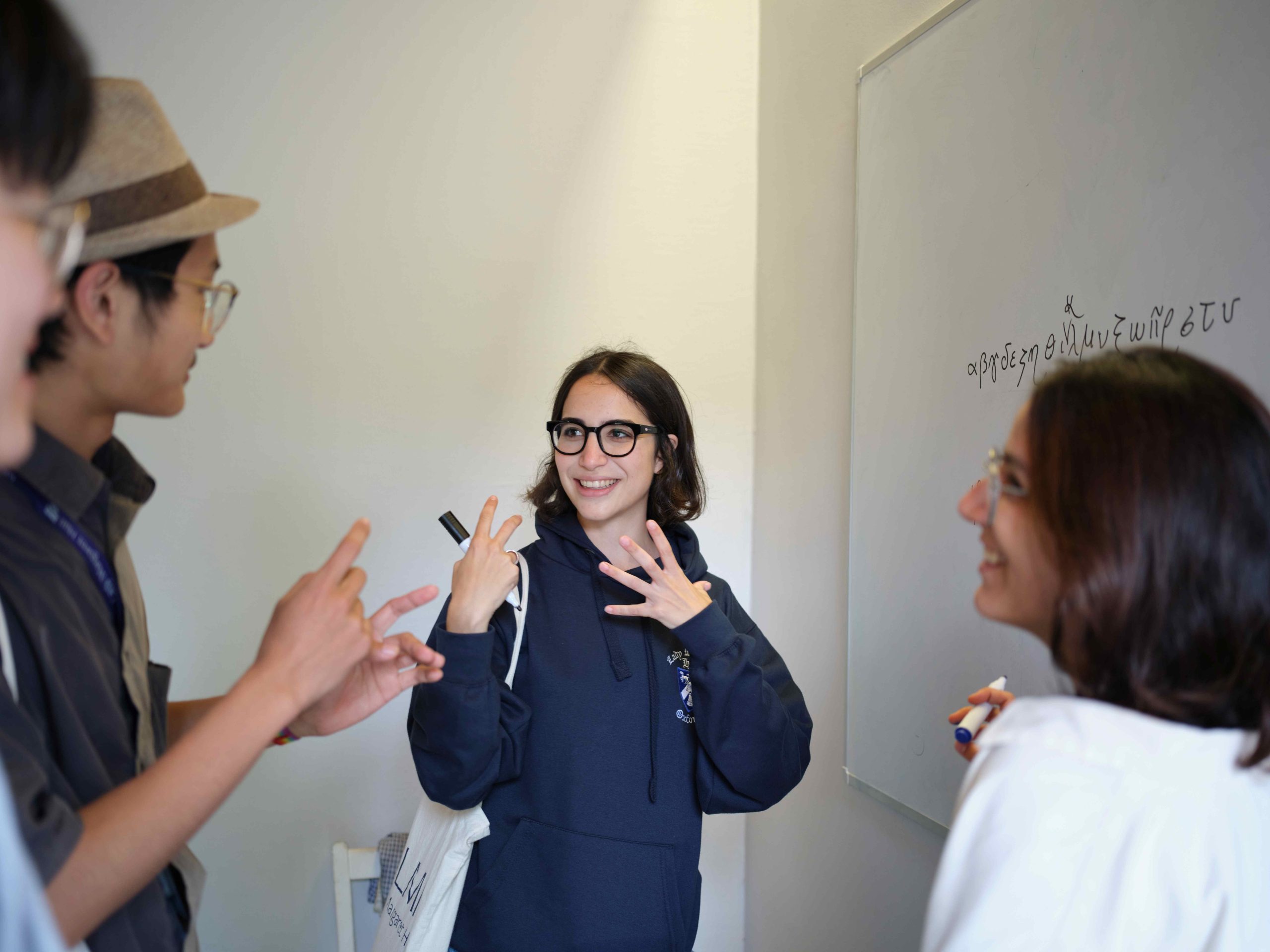
The Higgs Boson and the Future of Particle Physics
The Higgs Boson and the Future of Particle Physics summer course in Oxford, by Lady Margaret Hall.
- Duration
- Duration: 3 Weeks
- Dates
- Dates: June - August 2026
- Age Range
- Age Range: 19+
- Fees
- Fees from: £4,384.00
Course Summary
Join this course to explore the universe at the smallest distances and highest energies where quantum mechanics and special relativity collide.
Over the course of 3 weeks of lectures from world-experts and hands on seminars, students will join the particle physicists from the Large Hadron Collider’s ATLAS experiment in analysing real proton collisions from the world’s largest machine – uncovering the secrets of the building blocks of the universe. In the practical component, participants will work through coding notebooks to learn the Python data analysis techniques used by professional particle physicists, progressing from the very basics, to rediscovering the Higgs boson, to culminating with an original analysis of real data. Along the way, expect to develop computer coding, big data analysis and machine learning skills that will carry over to the real world.
Course Highlights
- Live and study in Lady Margaret Hall, one of Oxford's finest colleges
- Learn from experienced academics using the tutorial system
- Enjoy meals in hall, experiencing life as an Oxford student
- Gain new skills to take you further in your future academic or professional career.
Video
What's Included?
- All tuition, including lectures, seminars, and tutorials
- Assessment, transcript of academic performance, and certificate
- A co-curricular programme of skills workshops and guest speakers
- Access to the Lady Margaret Hall College Library
- Bed & Breakfast accommodation in a single bedroom throughout your programme
- Lunch and dinner in the College Dining Hall Monday to Friday
- A full Social & Cultural Programme, including two excursions to other English cities per three-week programme session
- A high-quality printed class photograph
- Formal Graduation banquet
Academics & Extracurriculars
Teaching:
LMH Summer Programmes are designed and delivered by experienced academics from Lady Margaret Hall and across the University of Oxford, and are taught using the Oxford teaching model, which emphasises personalised small-group learning.
In a series of thought-provoking lectures and lively seminar discussions you will learn about cutting-edge research, expand your core knowledge, and explore new ideas and concepts among peers with diverse international perspectives and academic backgrounds.
Tutorials, the conclusion of each week’s study, are an intellectual thrill. They are a unique opportunity for focused and personalised attention from an expert academic and a space for enthusiastic debate of important ideas. Alongside no more than two to three other students, you will present and discuss your work, accept constructive criticism, and engage with the ideas of your fellow students. These rigorous academic discussions help develop and facilitate learning in a way that cannot be done with lectures alone.
Assessment:
On a three-week LMH Summer Programme students produce one piece of assessed work every week, which is submitted to the tutor and then discussed in a tutorial. At the end of each week you will receive a percentage grade for your submitted work. Each week’s work counts for a third of your final percentage grade, so your final grade is an average of the mark received for each piece of work. Students who stay for six or nine weeks will receive a separate grade for each 3-week course.
Academic Credit:
Lady Margaret Hall will provide a transcript of your assessed work, and can send this directly to your home institution if required. LMH Summer Programmes are designed to be eligible for academic credit, and we will communicate with your home institution to facilitate this as needed. As a guide, we recommend the award of 15 CATS / 7.5 ECTS / 4 US Credits for each 3-week course.
Learn more on the official Lady Margaret Hall website .
Need More Information?
Lady Margaret Hall Frequently Asked Questions
Frequently Asked Questions
More about us and responses to frequently asked questions
Still have questions? See the full FAQs page.

Related Courses
Introduction to Cognitive Psychology
How are we able to focus on one thing rather than something else? Why do we remember some things and...
Advanced Artificial Intelligence and Machine Learning: Generative AI and Deep Unsupervised Learning
Deep Unsupervised Learning is an exciting emerging area of research in the field of artificial intelligence and machine learning, in...
Computational Psychology and Artificial Intelligence
How does the brain process information, make decisions, and learn? Computational Psychologists seek to answer these questions by using algorithms...
Global Perspectives on Public Health: A Survey of Core Concepts and Applied Practice
While clinical medicine deals with the health of the individual, public health is concerned with the health of the population....